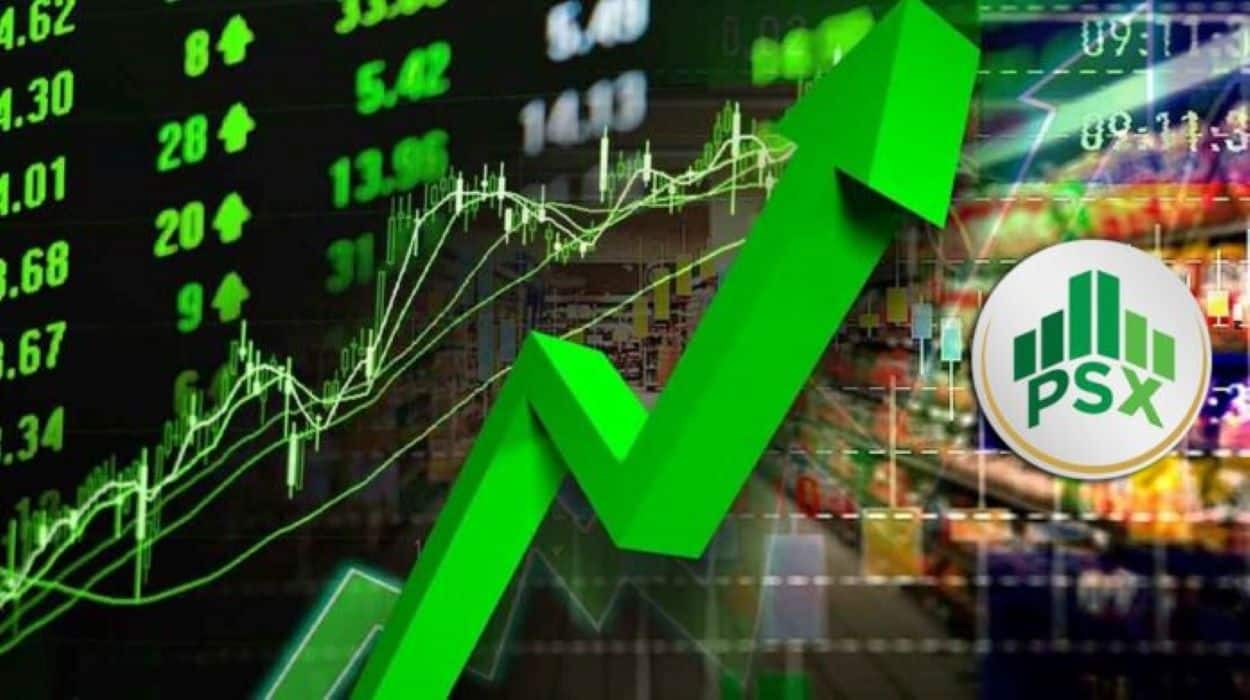On June 30, 2025, the Pakistan Stock Exchange (PSX) ended the 2024-25 fiscal year at an all-time high, with the KSE-100 index climbing 1,248 points to close at 125,627. Fueled by a $3.4 billion loan rollover from China and robust investor sentiment, the market experienced significant growth.
The KSE-100 index surged 1% or 1,248 points, reaching an intra-day high of 1,369 points before settling at 125,627. Strong trading volumes of 1,141 million shares, valued at Rs35.1 billion, reflected robust market participation. Key contributors included Fauji Fertiliser Company, HBL, Bank AL Habib, UBL, Pakistan Oilfields, Faysal Bank, and Pakgen Power, which collectively added 724 points to the index. WorldCall Telecom led the volumes with 139.9 million shares traded, while top value contributors included Pakistan Aluminium Beverage Cans (Rs 1.50 billion) and Faysal Bank (Rs 1.22 billion).
China’s rollover of a $3.4 billion commercial loan boosted Pakistan’s foreign exchange reserves to over $14 billion, meeting the IMF’s June 30 target. This strengthened rupee stability and investor confidence. Optimism also stemmed from Pakistan’s top ranking in Global Emerging Market Default Risk Reduction, anticipated industrial power tariff cuts, and government plans to privatise state-owned enterprises. Rising global equities further supported the bullish momentum, carrying forward the previous week’s gains.
Read: Pakistan Banks Defend Remittance Incentives Amid Misleading Claims
The record close positions the PSX strongly for the new fiscal year, with macroeconomic support enhancing investor trust. Topline Securities noted the market’s resilience, driven by fiscal year-end flows and external financial backing. High trading volumes and contributions from heavyweights signal sustained growth potential, although investors remain vigilant for policy developments, such as tariff adjustments and progress on privatisation.
The PSX’s historic high reflects Pakistan’s improving economic stability, bolstered by foreign reserves and global rankings. The surge highlights the vital role of international financial support and domestic reforms in fostering market confidence, which in turn affects investors, businesses, and the broader economy.






